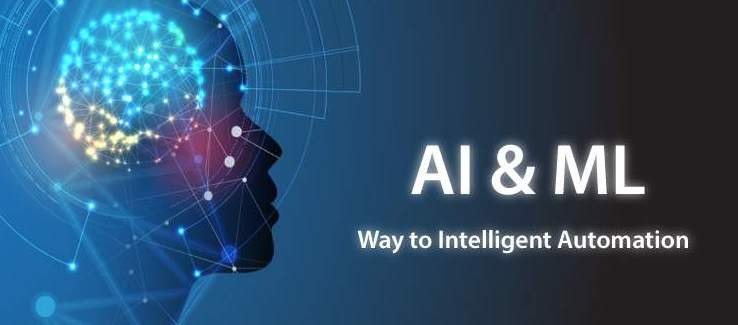
AI & Machine Learning (ML)
Artificial Intelligence (AI) and Machine Learning (ML) are revolutionizing website development and user experience by enabling automation, personalization, data-driven insights, and advanced functionality. AI/ML technologies can transform a website into an intelligent platform that anticipates user behavior, optimizes content, and automates complex tasks. Integrating AI and ML into a website enhances user engagement, improves efficiency, and creates dynamic, responsive interfaces that learn and adapt over time.
Key Applications of AI & ML
-
Personalized User Experience: AI and ML algorithms analyze user behavior, preferences, and past interactions to provide personalized content, recommendations, and interfaces. For example, an e-commerce website can use AI to recommend products based on browsing history, while a content site can tailor articles or videos to a user’s interests.
-
Chatbots and Virtual Assistants: AI-powered chatbots provide real-time customer support by answering common queries, assisting with navigation, and solving user problems 24/7. Virtual assistants can guide users through complex processes like product selection, account management, or booking services. Machine learning helps these bots improve over time by learning from user interactions, leading to more accurate and efficient responses.
-
Search Engine Optimization (SEO) and Content Optimization: AI tools can analyze website data and suggest improvements for SEO. These systems analyze user search patterns, keywords, and competitors to optimize content for better ranking on search engines. ML algorithms can also dynamically update website elements like meta tags, headers, and images based on user behavior and trends, ensuring the site stays relevant and visible.
-
Image and Voice Recognition: AI-enabled image and voice recognition allows websites to integrate advanced functionalities like facial recognition for authentication, voice search, or image-based search features. These technologies enhance accessibility, allowing users to interact with the site using voice commands or search using images rather than text.
-
Content Generation and Automation: AI can automate the creation of website content such as product descriptions, blog posts, or personalized marketing emails. Using natural language processing (NLP), AI tools can write human-like content based on input data, reducing the manual workload for content creators and speeding up content delivery.
-
Predictive Analytics and User Behavior Prediction: ML models analyze user data to predict future actions, such as purchases, website exits, or content preferences. This allows businesses to anticipate customer needs and behaviors, offering targeted promotions, personalized offers, or interventions that increase conversions. Predictive analytics also help in reducing churn rates by identifying users likely to abandon the website.
-
A/B Testing and Website Optimization: AI can automate A/B testing, analyzing user responses to different website elements—such as CTAs, images, or layout options—and automatically adjusting the site to optimize user experience and conversion rates. AI-based testing is faster, more precise, and can identify the most effective variations based on real-time data.
-
Voice Search Optimization: With the rise of voice assistants like Alexa, Siri, and Google Assistant, optimizing websites for voice search is becoming essential. AI tools can help tailor content, keywords, and structure to better align with voice search queries, improving the site’s accessibility for voice-based searches.
-
Dynamic Pricing and Inventory Management: For e-commerce platforms, AI and ML can dynamically adjust prices based on demand, customer behavior, competitor pricing, and inventory levels. This ensures competitive pricing strategies while maximizing revenue. Additionally, ML can optimize inventory management by predicting demand patterns, helping businesses avoid stockouts or overstocking.
-
Fraud Detection and Security: AI-powered security systems monitor website traffic and user activity to detect and block fraudulent behavior such as hacking attempts, fake account creation, or payment fraud. Machine learning algorithms learn from historical security incidents to improve their ability to identify and mitigate threats in real-time.
-
Voice and Natural Language Processing (NLP): AI can enhance website functionality by integrating voice search or voice command capabilities, making it easier for users to interact with the website hands-free. NLP allows websites to understand and process user language, enabling more intelligent search functions, customer service responses, or chatbot interactions.
-
Content Recommendation Engines: AI-powered recommendation engines analyze user data to suggest relevant content, products, or services. For example, Netflix uses AI to recommend shows based on viewing history, while e-commerce sites use it to suggest complementary products. These systems increase user engagement and retention by delivering personalized recommendations.
-
Customer Segmentation and Targeting: AI can segment website visitors into distinct user groups based on behavior, demographics, and preferences. This allows businesses to target each group with personalized content, offers, and ads, optimizing marketing campaigns. Machine learning enhances these segments over time, making customer targeting more accurate.
-
Heatmaps and User Interaction Tracking: AI-driven heatmaps and tracking tools analyze how users navigate a website, including where they click, scroll, or hover. This helps designers optimize website layouts and improve user experience. ML can then automate design changes based on user interaction data to enhance usability and engagement.
-
Voice Search and Conversational Interfaces: As voice search grows in popularity, AI-powered voice recognition systems can be integrated into websites to allow users to search or interact with the site using natural speech. This improves accessibility and user convenience, especially for mobile and hands-free browsing.

Benefits of AI & ML
- Enhanced User Experience: AI/ML personalizes content and recommendations, offering users a tailored experience that keeps them engaged and encourages return visits.
- Automation of Repetitive Tasks: AI automates routine tasks like answering FAQs, processing transactions, and generating reports, reducing the need for human intervention and improving efficiency.
- Data-Driven Insights: AI-driven analytics provide valuable insights into user behavior, site performance, and business trends, helping decision-makers optimize the website and improve strategies.
- Improved Security: AI tools enhance website security by identifying and responding to threats in real-time, safeguarding user data and maintaining trust.
- Higher Conversion Rates: By offering personalized experiences, predictive recommendations, and optimized pricing strategies, AI/ML can significantly increase website conversion rates and customer satisfaction.

